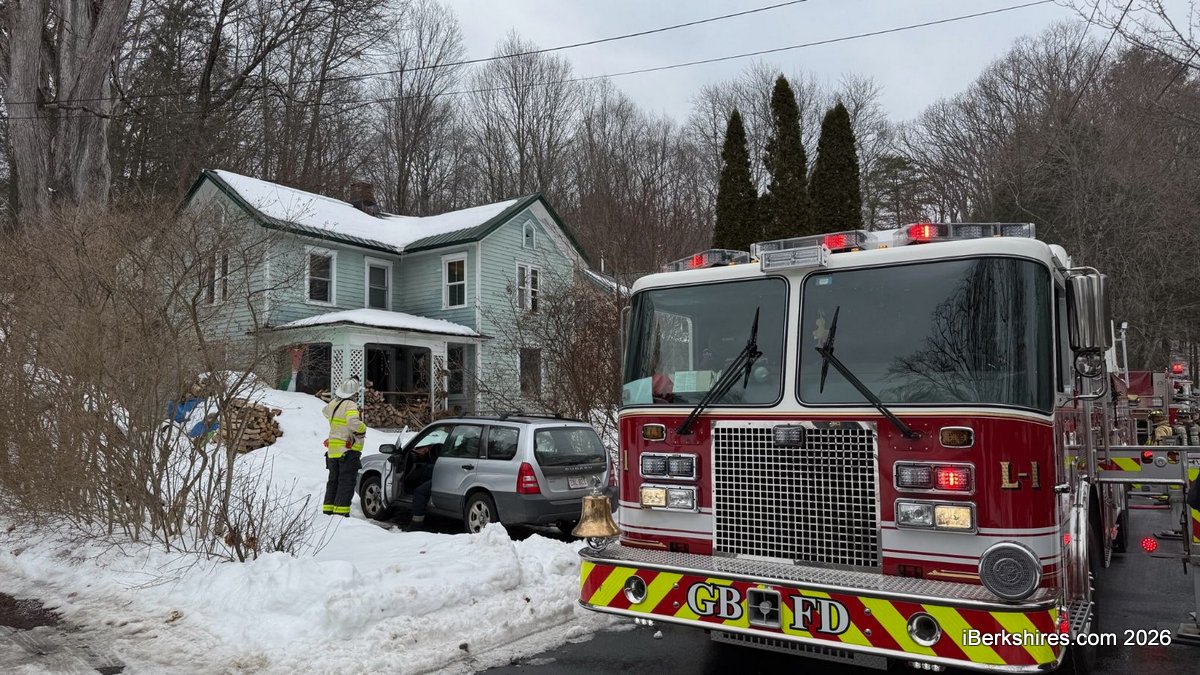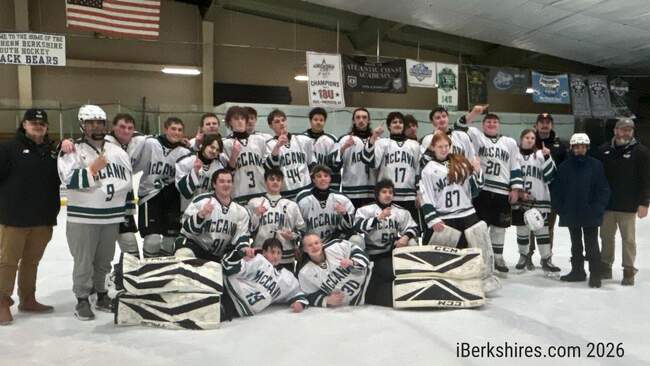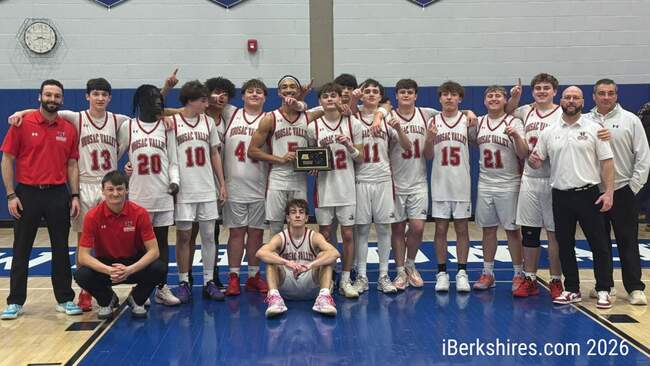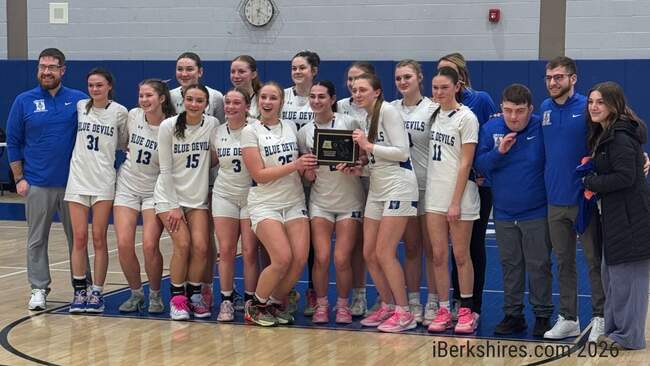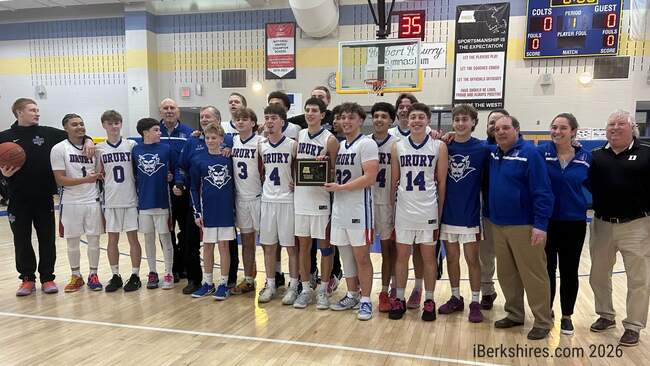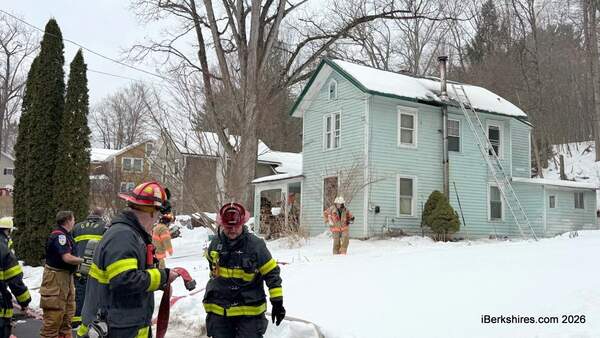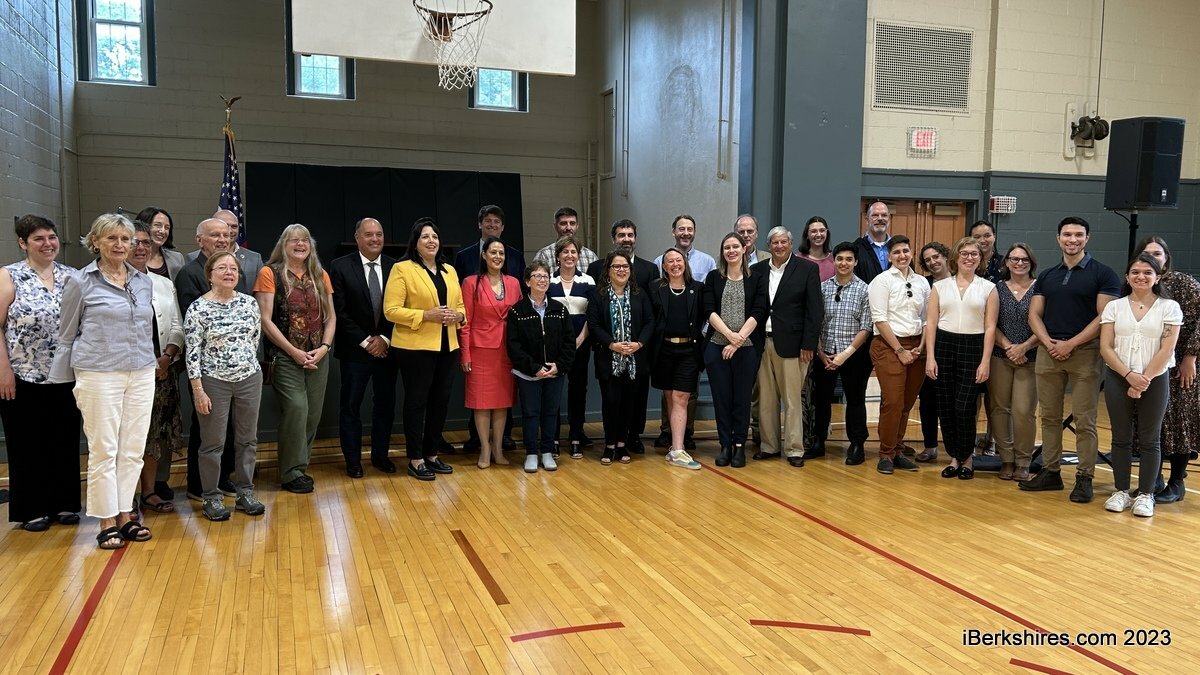
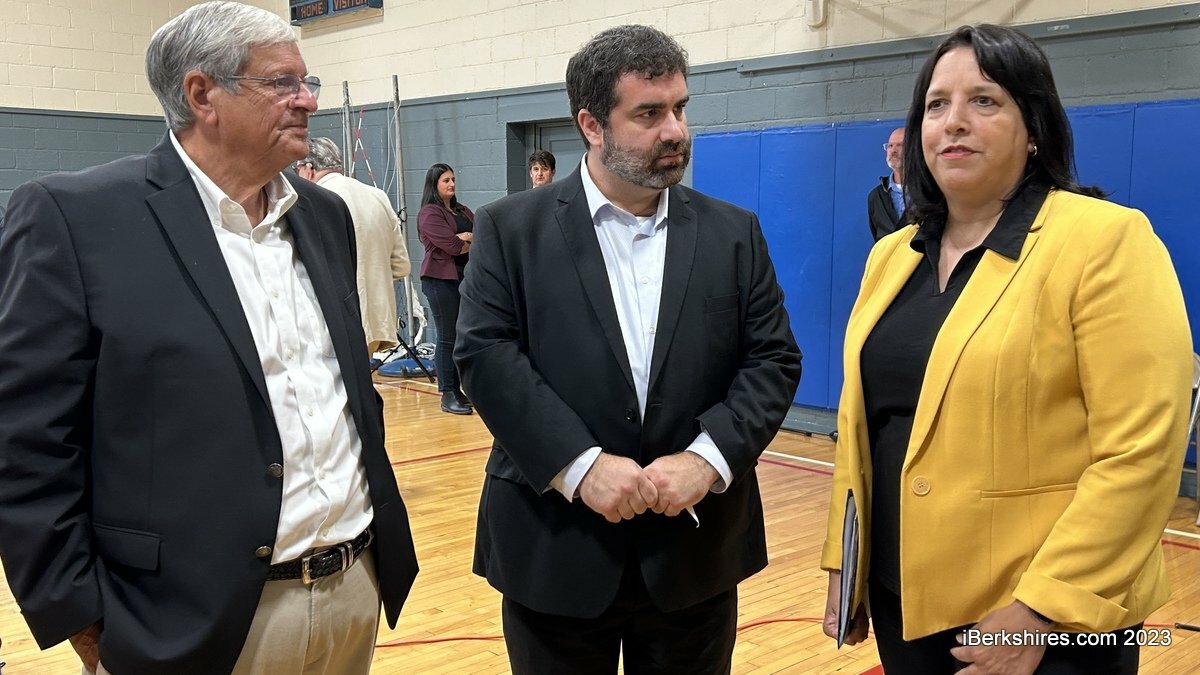
Stockbridge-Munsee Gets $2M to Reclaim Indigenous Land
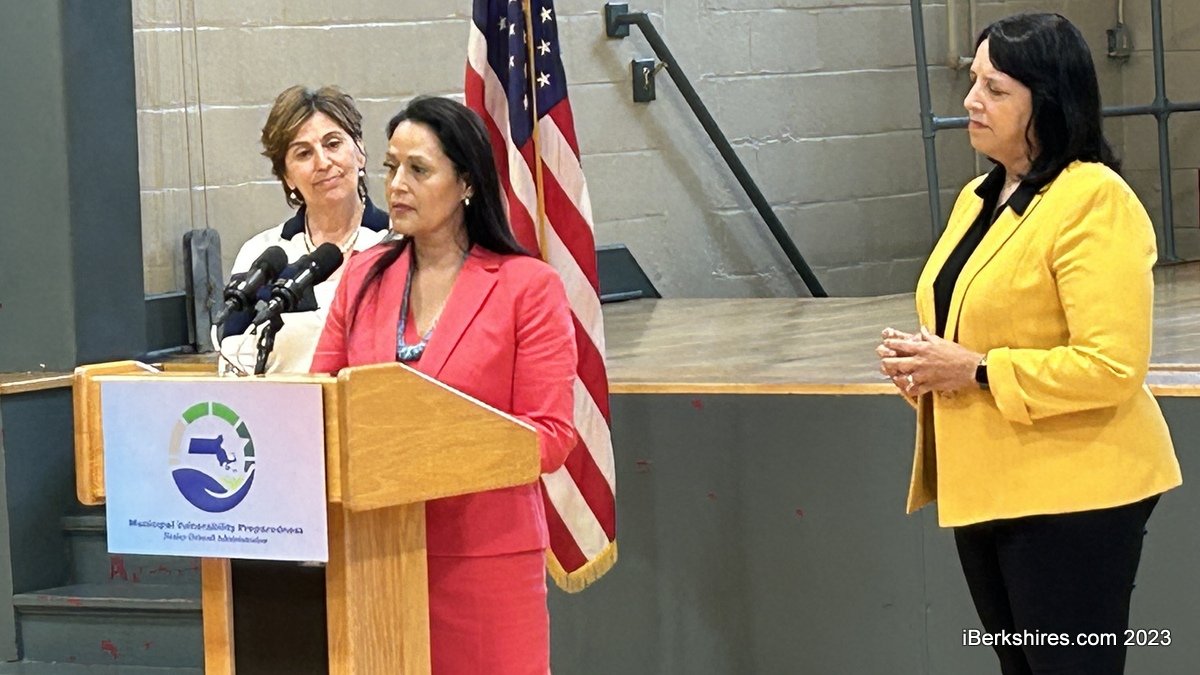
STOCKBRIDGE, Mass. — The Stockbridge-Munsee Band of Mohicans is one of the first tribes to receive state Municipal Vulnerability Preparedness funding, a historical feat that will go toward the reclamation of indigenous homeland.
On Wednesday, the Healey-Driscoll administration announced the $31.5 million in grants for climate resilience implementation and planning throughout the state.
The band was awarded a $2.26 million MVP Action Grant to reclaim 351 acres of their indigenous homelands and establish tribally driven conservation and forest management strategies. It is one of two tribes to receive the funding.
"We firmly believe that when we empower our communities to do good work and take collective action that our commonwealth is better for it. We're stronger, we're healthier, ready to move forward, ready to meet the moment that we need to," Lt. Gov. Kim Driscoll said at Town Hall on Wednesday morning.
"So Governor Healey and I really are committed to continue to grow this popular grant program and the partnership it fosters. This is a profoundly meaningful relationship between the state and communities embracing a challenge together, just like we're seeing here with the Stockbridge-Munsee Band of Mohicans. We know we can only tackle the impacts of the climate change crisis that we're seeing together and we feel like we have much to learn from grantees that are not only gathered here today but ones that will come afterwards as well."
The tribe originally called Stockbridge home until the 1800s when they were forced to leave, eventually relocating to Wisconsin. Now, the north slope of land on Monument Mountain known as Fenn Farm will return to its indigenous roots.
"That's not only a meaningful step forward in relation to our history but also means that indigenous land management practices and traditional ecological knowledge are going to help us fight, adapt, to an ever-present and changing climate future," Driscoll said.
Stockbridge-Munsee Band of Mohicans President Shannon Holsey said it is an "emotional and joyful" day.
"It really allows us to dig deep into our history while looking towards the future of indigenous liberation where everyone has a place in the circle to not only bring their gifts, their skills, and their love for the people in the land. Our mission, like many of you environmental justice warriors, is to continue to foster and create relationships centered around integrated capital solutions and capacity building with our tribal nations and others. It really requires enlisting partners, change makers, allies, community developers, and of course, partners like the state of Massachusetts and MVP grant opportunities like expressed here today," she said.
"Really, today represents an ability to create a paradigm shift in how society invests in tribal nations by grounding an investment strategy in indigenous systems thinking, by recognizing the interconnectedness of all beings and our responsibilities to our own lands and to each other. Our approach we believe ensures a resilient and regenerative framework from start to finish, built around the origins of our homelands."
Holsey explained that the reclamation is a much bigger movement than simply taking back the land.
"With the return of our land, the Stockbridge-Munsee Tribe will be able to not only reclaim our cultural ties and practices, I want to express we are not trying to reclaim lands from ownership in a Western colonial way of thinking about it," she said.
"We are trying to reclaim our ways of being, which was never based on money. It was the reclamation of our kinship systems, our governance systems, our ceremony and spirituality, our language, our culture, and our food and medicinal systems. Those are all based on our relationships to the land."
She said that the tribe's ancestors are pleased that they are doing what is best for the people of today and future generations of tomorrow.
"And I will remind you, we all need to do the work that our ancestors will be proud of," she concluded.
Energy and Environmental Affairs Secretary Rebecca Tepper said indigenous land management is a key way to further climate resilience in the state.
"These lands hold valuable cultural significance. Preserving them is important to mitigating the effects of climate change through flood and heat mitigation," she said. "As you know, in the coming years, climate resilience will be one of our greatest challenges but it also is one of our greatest opportunities."
She pointed to the extreme weather of this summer and said resilience, planning, and action need to be zeroed in on.
The National Weather Service in Albany, N.Y., says this year has been the third wettest since recordkeeping began nearly 200 years ago. Torrential rain storms caused nearly $7 million in damage in North Adams and Clarksburg last month, bringing Gov. Maura Healey and other officials to the area to survey the situation. The rains and a late frost have also caused extensive crop damage in the Berkshires and especially the Pioneer Valley.
The core values of the MVP program are collaboration, environmental justice, and action.
"The heart of the MVP program is collaboration with local municipalities," Tepper said. "The whole point of the program is that people who live in their towns know their towns. You know where the streets flood, you know where that culvert is falling apart."
Within the almost $32 million package are about $29 million in action grants to get projects moving and about $3 million through the MVP 2.0 program that resists local climate resiliency plans with an emphasis on equity and environmental justice.
Pittsfield is getting $322,435 for the Francis Avenue parklet and stormwater designs and routing studies to West Street.
This will fund a safety study around a parklet on Francis Avenue that connects an environmental justice community on top of Jubilee Hill to the resources on West Street such as Big Y, CVS Pharmacy, and two banks. It will look at both the safety of pedestrians and stormwater remediation infrastructure.
Park, Open Space, and Natural Resource Program Manager James McGrath explained that the park was somewhat of a forgotten area at the top of Francis Avenue that has been identified by the community as having high potential for a great public space.
"So there will be a lot of community involvement around the design of it and then there are some stormwater challenges with this area as well so there was looking at all of it and the whole idea is it's all part of that resilient neighborhood," he said.
"Greening the neighborhood, controlling stormwater issues, and then really just helping folks identify in a non-motorized way how we can get them to the resources along West Street, those resources which they need."
In addition to the Stockbridge-Munsee grant, the Berkshires received another $1,054,513 in Municipal Vulnerability Preparedness Action Grants for a total of $3,634,938.
The town of Clarksburg is getting $215,143 for floodplain restoration and resiliency in the Four Corners area (near the town field, school and community center) and, with the Briggsville Water District, another $48,150 for land acquisition and tank engineering for flood and drought resilience. The private water district is seeking to purchase land for the installation of reservoir tanks near the Red Mill spring on River Road; Town Hall is on the water system.
Egremont, in conjunction with Great Barrington, is getting $81,500 toward climate action planning and implementation, and Great Barrington $709,720 for Phase 2 of its improvements to Lake Mansfield.
Tags: climate change, climate resiliency, mohicans, state grant,

